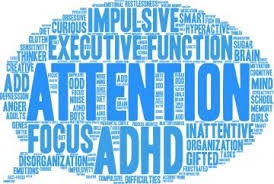In academic and medical circles, attention deficit hyperactivity disorder (ADHD) has long been a topic of study and worry. To control its symptoms, a number of therapeutic modalities have been developed over time, including behavioral therapy and medicines. While stimulants and non-stimulants have long been the mainstay of treatment, new paths for more individualized and effective therapies are being explored by continuing research. This article explores the most recent discoveries in the field of ADHD drug research, emphasizing encouraging findings that provide hope to those who suffer from the disorder as well as their families.
Introduction to ADHD Medications:
Neurotransmitters like dopamine and norepinephrine, which are important for attention, focus, and impulse control, are the main targets of ADHD treatments. Because stimulant treatments, such as methylphenidate (e.g., Ritalin) and amphetamine-based medications (e.g., Adderall), effectively improve attention while lowering hyperactivity and impulsivity, they are frequently given for ADHD. But worries about adverse consequences and individual differences in reaction have forced researchers to look into different strategies.
Non-Stimulant Medications:
Although stimulants are the most often given treatments for ADHD, non-stimulant options have come to light as a viable option for people who cannot tolerate the unpleasant side effects of stimulant medications or do not respond well to them. One such non-stimulant drug that has been authorized for the treatment of ADHD is atomoxetine (Strattera). It functions by raising norepinephrine levels in the brain, which helps with impulse control and focus. To increase atomoxetine's efficacy, recent studies have concentrated on determining response predictors and fine-tuning the dosage schedule.
Novel Pharmacological Targets:
To address the varied symptomatology of ADHD, researchers are looking into novel pharmacological targets in addition to standard stimulant and non-stimulant drugs. Glutamate, the most prevalent neurotransmitter in the brain and a key player in cognitive processes including memory and learning, is one topic of interest. NMDA receptor modulators, for example, are drugs that target the glutamatergic system and are being studied for their ability to help people with ADHD with executive functioning and cognitive flexibility.
Personalized Medicine Approaches:
Personalized medicine is a growing notion that challenges the one-size-fits-all approach to ADHD medication by focusing on customizing treatments to meet the unique needs and features of each patient. Genetic and neuroimaging advancements have shed light on the fundamental biological mechanisms causing ADHD and have revealed putative biomarkers that may be used to predict treatment outcome. Pharmacogenetic testing, which examines how a person's genetic composition affects how they respond to drugs, has the potential to help with ADHD medication selection and dosage.
Extended-Release Formulations:
Children and adolescents who may have trouble adhering to numerous daily dosages may find it difficult to comply with ADHD treatment regimens. By delivering consistent drug delivery over an extended period of time, avoiding variations in medication levels, and eliminating the need for frequent dosage, extended-release formulations provide an answer. New extended-release formulations that are more convenient and effective than traditional immediate-release drugs have been created as a result of recent developments in drug delivery technology.
Complementary and Alternative Therapies:
As supplemental therapy for ADHD, complementary and alternative therapies are becoming more and more popular in addition to pharmaceutical interventions. Mind-body therapies including tai chi, yoga, and mindfulness meditation have demonstrated potential in enhancing emotional well-being, self-regulation, and focus in ADHD patients. Zinc and omega-3 fatty acids are two dietary supplements that are being researched for their possible neuroprotective properties and ability to lessen the symptoms of ADHD.
Digital Therapeutics:
The delivery of evidence-based interventions via digital platforms like smartphone apps and virtual reality simulations is made possible by the integration of technology into healthcare. A variety of interventions, such as behavior tracking, mindfulness training, and cognitive training, are included in digital therapy for ADHD. The benefits of these digital tools—accessibility, scalability, and real-time monitoring—make them desirable choices for anyone looking for extra help controlling their symptoms of ADHD.
Emerging Trends in ADHD Treatment:
In the future, novel therapies and individualized methods will likely bring about even more changes to the treatment landscape for ADHD. Targeting specific brain circuits linked to ADHD is being investigated using developing methods such as gene therapy, neurofeedback, and transcranial magnetic stimulation. Our capacity to create more specialized and effective treatments will advance along with our comprehension of the neurological causes of ADHD.
Challenges and Considerations:
Even with the encouraging developments in the field of ADHD pharmaceutical research, a number of obstacles still need to be overcome. Problems including drug compliance, the stigma associated with mental health disorders, and unequal access to care still affect how well ADHD patients are treated. The necessity of thorough clinical trials and ongoing safety monitoring further emphasizes the value of ongoing funding for research and cross-disciplinary team collaboration.
Conclusion:
There are significant advancements being made in the realm of ADHD pharmaceutical research that could potentially enhance the quality of life and results for people with ADHD. New research is changing the face of treating ADHD, from innovative pharmacological targets to customized medicine strategies and digital therapies. Through welcoming creativity, tackling obstacles, and encouraging cooperation, we may work toward a time when each person with ADHD has access to specialized and successful interventions that help them to flourish.
All things considered, the most recent research on ADHD medication is encouraging, with developments being made in a number of fields, including new pharmacological targets, customized medicine strategies, extended-release formulations, digital therapeutics, complementary therapies, and developing trends. Even if there are still obstacles to overcome, there is promise for better results and a higher standard of living for people with ADHD if study and collaboration are continued.


No comments yet